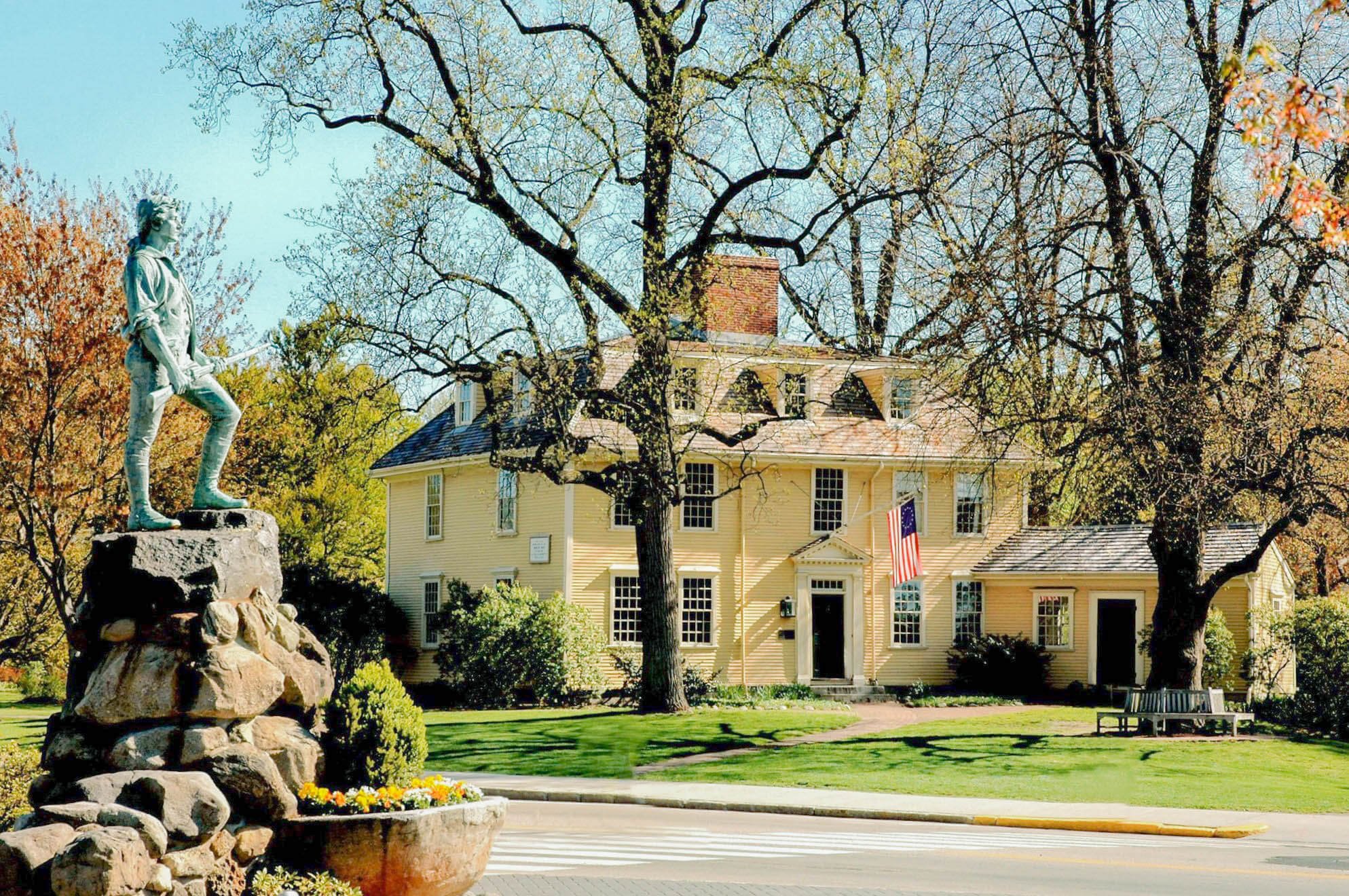
Archives & Research Center
From its founding in 1886, Lexington History Museums has gathered key collections and artifacts to preserve for future generations. While much of the focus in Lexington is often given to the Revolutionary era, our curatorial and archival holdings of more than 20,000 items reflect Lexington’s rich history from the 1630s through present day.
-
Lexington History Museums maintains a research library and archives. The collections cover the entirety of Lexington’s history from the 17th century through present-day, and include thousands of original manuscripts and photographs. Our archives are especially rich regarding Lexington’s historic role in the opening days of the American Revolution.
If you are interested in conducting research with us, please fill out the form on this page with as much information about your inquiry as you can. Please be aware that research requests generally take three weeks for response. Appointments to conduct research physically in the archives must also be made at least three weeks in advance.
-
For all requests thirty minutes of preliminary staff time will be offered to researchers at no charge.
____________________
For Members:
A. Staff can be requested to conduct research for $25/hour for a maximum of 2 hours. After the two hours the requester and the staff member will discuss the next steps.
All researchers must request an appointment in order to access the archives. The appointments will last 2-3 hours.
Additional appointments may be made with the Curatorial Assistant if needed.
****For research conducted by staff for $25/hour, results cannot be guaranteed. A preliminary free search, however, would indicate if enough materials were present to warrant the search.
B. Individual Research
Individual Research privileges (use of archives) are extended to Lexington History Museums members at no charge.
Individual Research privileges are extended to students and nonprofit 501(c)(3) organizations at no charge.
Non-Members
A. Researchers may utilize the archives for a $45 research fee; or they can become a member of LHM. Please visit www.lexingtonhistory.org/join to learn more.
B. You may hire a freelance researcher to conduct research in the archives at your discretion. These researchers may charge an hourly fee, in addition to the $45 flat fee for use of the archives.
To make an appointment, please use the form below.
-
Lexington History Museums maintains a research library. The collections cover the entirety of Lexington’s history from the 17th century through the present day, and include thousands of original manuscripts, photographs, and objects. Our archival and object collections are especially rich regarding Lexington’s historic role in the opening days of the American Revolution.
Digitization of the LHM collection is ongoing and a small portion of our materials is available through the Online Collections.
-
Researchers should familiarize themselves with these regulations prior to visiting the archives.
1. Researchers are required to complete a check-in process with the Archives staff at each visit, including presenting a valid photo ID.
2. No personal belongings such as large bags or coats are allowed at the research tables in the Reading Room. You may leave their belongings with a staff member in the Processing Room or other designated area for the duration of their visit.
3. Notes may be taken using a personal computer, phone, or paper and pencil. The use of pens is forbidden in the Reading Room.
4. No food or drink is allowed in the Reading Room, and hands must be clean and dry before handling archival materials.
5. Archival items may be photographed using a personal camera or cellphone, without the use of a flash, at no charge.
6. Scans of archival items may be requested and are subject to a fee. Digital reproductions of items must be requested through the use of our Image Reproduction Form. Reproduction requests may be denied due to the status or condition of the material. Please see our Archival Research and Reproduction Fees policies for more information.
7. Storage areas are closed to researchers. Staff will retrieve requested items and deliver them to you in the Reading Room.
8. Researchers are allowed to call two boxes of material at a time. No additional request may be made during appointments.
9. It is requested that researchers open only one folder at a time and ensure that the order of material is maintained within each folder and box.
10. All archival materials must be viewed flat on the table. Do not make marks on any materials or affix extraneous items to any pages. Do not place objects on top of any archival materials. Please report any concerns or damages regarding materials to a staff member immediately.
11. Any permissions granted by the Lexington History Museums are for a one-time use only. All reproductions are the copyright of Lexington Historical Society unless otherwise noted in writing. Lexington History Museums should receive a credit line in all publications. Use of preferred citation for each collection is expected.
“Credit line: Courtesy of Lexington History Museums”
-
The Archives and Research Center is located at Munroe Tavern.
1332 Massachusetts Ave, Lexington, MA 02420
Research Request Form
Lexington History Museums maintains a research library and archives. The collections cover the entirety of Lexington’s history from the 17th century through present-day, and include thousands of original manuscripts and photographs. Our archives are especially rich regarding Lexington’s historic role in the opening days of the American Revolution.
If you are interested in conducting research with us, please fill out this form with as much information about your inquiry as you can. Please be aware that research requests generally take three weeks for response. Appointments to conduct research physically in the archives must also be made at least three weeks in advance.



